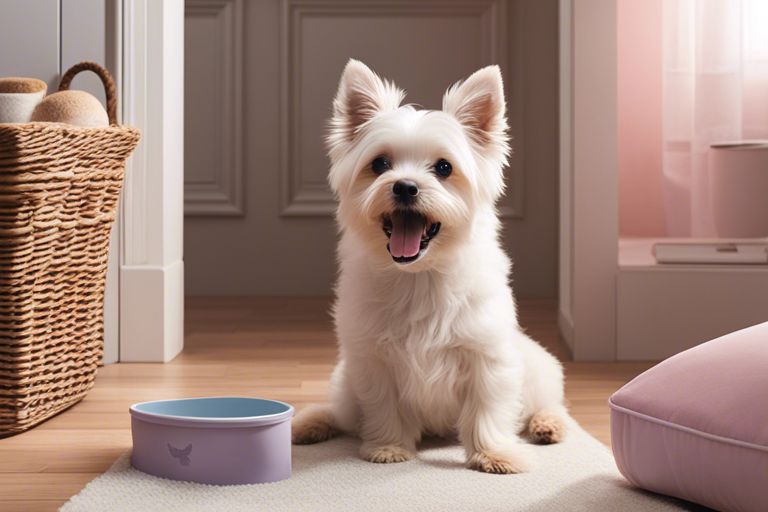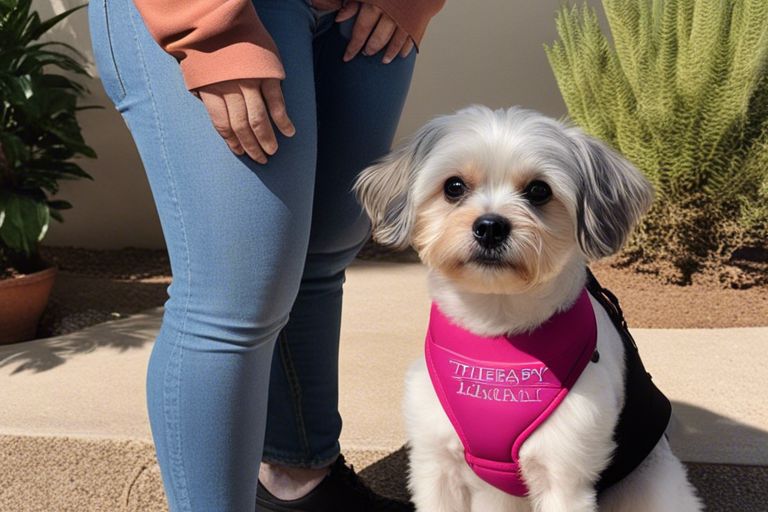Onychocryptosis, also known as ingrown toenails, is a common and painful condition that many German Shepherd owners may be concerned about. As a German Shepherd owner myself, I understand the importance of preventing chest bloat in our beloved pets. In this informative blog post, I will discuss the dangerous risks associated with chest bloat in German Shepherds and provide precautionary measures that you can take to help prevent this condition in your furry friend.
Key Takeaways:
- Understanding the Causes: It is important to understand the causes of chest bloat in German Shepherds, such as genetics and diet, in order to prevent it effectively.
- Proper Diet and Nutrition: Feeding a balanced diet and avoiding rapid eating can help prevent chest bloat in German Shepherds.
- Regular Exercise: Regular exercise and avoiding intense activity after meals can reduce the risk of chest bloat in German Shepherds.
- Veterinary Consultation: Regular check-ups with a veterinarian can help monitor the health of German Shepherds and identify potential risk factors for chest bloat.
- Be Alert to Symptoms: Being aware of the symptoms of chest bloat, such as restlessness, excessive drooling, and a distended abdomen, can help in early detection and treatment.

Understanding Gastric Dilatation-Volvulus (GDV) Syndrome
Assuming you are a German Shepherd owner, you may have heard of the term Gastric Dilatation-Volvulus (GDV) syndrome. This is a serious condition that affects large, deep-chested breeds such as German Shepherds. GDV occurs when the stomach fills with gas and twists on itself, cutting off blood flow. This can be a life-threatening emergency that requires immediate veterinary attention.
Symptoms of GDV Syndrome in German Shepherds
Recognizing the symptoms of GDV syndrome in German Shepherds is crucial for early intervention. Some common signs include restlessness, pacing, unproductive vomiting or retching, bloating of the abdomen, and difficulty breathing. As the condition progresses, the dog may go into shock, with pale gums, rapid heartbeat, and weak pulse. If you notice any of these symptoms in your German Shepherd, it is imperative to seek veterinary care immediately.
Causes of GDV Syndrome in German Shepherds
The exact causes of GDV syndrome in German Shepherds are not well understood, but there are several factors that may contribute to the development of this condition. Factors such as genetics, anatomy, feeding habits, and exercise patterns can all play a role in the likelihood of a dog developing GDV. Feeding your German Shepherd one large meal a day, feeding from an elevated bowl, and engaging in vigorous physical activity after eating are all potential risk factors for GDV syndrome.
Prevention of Chest Bloat in German Shepherds
However, there are several preventative measures you can take to minimize the risk of chest bloat in your German Shepherd. By being proactive and taking the necessary precautions, you can help ensure your furry friend’s well-being.
Suitable Diet and Feeding Methods
When it comes to preventing chest bloat in German Shepherds, the diet plays a crucial role. I recommend feeding your dog smaller, more frequent meals throughout the day rather than one or two large meals. This can help reduce the chances of your dog gulping air while eating, which can contribute to bloat. Additionally, it’s important to choose a high-quality, easily digestible dog food that is appropriate for your German Shepherd’s age, size, and activity level. Avoid feeding your dog immediately before or after exercise to minimize the risk of bloat.
Role of Regular Exercise and Activity
Regular exercise and physical activity are essential for keeping your German Shepherd healthy and happy. However, it is important to be mindful of your dog’s activity levels, especially before and after meals. I recommend not engaging in strenuous physical activity or intense play immediately before or after feeding. Too much activity around mealtimes can increase the risk of bloating. Instead, aim for moderate exercise and allow your dog to rest before and after meals. Remember, keeping your German Shepherd physically active is important for their overall well-being, but it’s crucial to strike a balance to prevent chest bloat.
Medical Interventions and Their Role in Prevention
Lastly, let’s discuss the role of medical interventions in preventing chest bloat in German Shepherds. While there are no guaranteed preventative measures, certain medical interventions can help reduce the risk of this serious condition.
Early Detection and Diagnosis
Early detection and diagnosis play a crucial role in preventing chest bloat in German Shepherds. As a responsible pet owner, it’s important to closely monitor your dog for any signs of discomfort, restlessness, or an enlarged abdomen. If you notice any of these symptoms, it’s essential to seek veterinary care immediately. Your veterinarian can perform diagnostic tests, such as X-rays or ultrasounds, to confirm the presence of chest bloat and initiate appropriate treatment. Early detection and prompt intervention can significantly improve the chances of a positive outcome for your pet.
Surgical Procedures and Their Effectiveness
In some cases, surgical intervention may be necessary to prevent chest bloat in German Shepherds. The most common surgical procedure for this condition is prophylactic gastropexy, which involves fixing the stomach to the abdominal wall to prevent it from twisting. This surgical intervention can be highly effective in reducing the risk of gastric dilatation-volvulus (GDV), the life-threatening form of chest bloat. If you have a high-risk dog, such as a deep-chested breed like the German Shepherd, discussing the possibility of prophylactic gastropexy with your veterinarian is crucial for your pet’s long-term health and well-being.
Overall, while there are no foolproof measures to prevent chest bloat in German Shepherds, early detection, diagnosis, and appropriate medical interventions can significantly reduce the risk and improve the chances of a positive outcome for your beloved pet.
The Importance of Preventative Measures for Chest Bloat in German Shepherds
The key to minimizing the risk of chest bloat in German Shepherds lies in implementing a few simple preventative measures. By feeding your dog smaller, more frequent meals, keeping them calm and relaxed after eating, and avoiding vigorous exercise immediately after meals, you can significantly reduce the likelihood of chest bloat occurring. Additionally, being mindful of their dietary habits and feeding them a high-quality, easily digestible diet can also play a crucial role in preventing this potentially life-threatening condition. Taking these precautionary steps can make all the difference in the health and well-being of your beloved German Shepherd.
FAQ about Preventative Measures for Chest Bloat in German Shepherds
Q: What is chest bloat in German Shepherds?
A: Chest bloat, also known as Gastric Dilatation-Volvulus (GDV), is a serious and potentially life-threatening condition in which a dog’s stomach fills with gas and twists. This can lead to a variety of serious health problems and requires immediate veterinary attention.
Q: Are there preventative measures for chest bloat in German Shepherds?
A: Yes, there are several preventative measures that can help reduce the risk of chest bloat in German Shepherds, including feeding smaller, more frequent meals, avoiding exercise right after eating, and discouraging rapid eating. Additionally, some owners choose to have a prophylactic gastropexy performed, in which the stomach is surgically tacked to the abdominal wall to prevent it from twisting.
Q: Can diet play a role in preventing chest bloat in German Shepherds?
A: Yes, diet can play a role in preventing chest bloat. Feeding a high-quality, easily digestible diet and avoiding foods that are known to contribute to gas and bloating can help reduce the risk. Additionally, using slow-feed bowls or puzzle feeders can help slow down eating and reduce the risk of swallowing excessive air while eating.
Q: Are there specific exercises or activities that can help prevent chest bloat in German Shepherds?
A: While there are no specific exercises or activities that can prevent chest bloat, it’s important to avoid vigorous exercise immediately after eating. Allowing your dog time to digest their food before engaging in intense physical activity can help reduce the risk of gastric torsion.
Q: What are the signs of chest bloat in German Shepherds, and when should I seek veterinary care?
A: Signs of chest bloat in German Shepherds can include restlessness, abdominal distension, unproductive retching, excessive drooling, and rapid breathing. If you suspect your dog may have chest bloat, it is crucial to seek veterinary care immediately. Time is of the essence, and prompt intervention is essential for a positive outcome.



One thought on “Are There Preventative Measures For Chest Bloat In German Shepherds?”